Graduates in Focus 2021
View our current Graduates in Focus 2023 | View our Graduates in Focus 2022
|
|
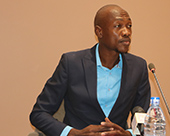 |
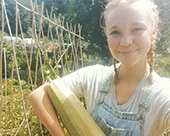 |
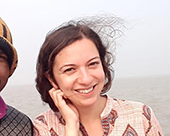 |
|
Priyanka Shendage (2018) |
Hyacinthe Ndolenodji (2018) |
Naomi-Beth Dixon (2020) |
Oana Stefancu (2017) |
 |
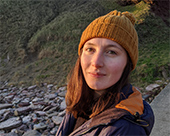 |
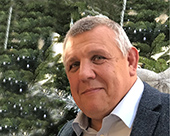 |
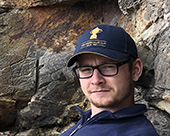 |
| Catherine Lee Hing (2021) MSc Conservation Science and Policy |
Sienna Lula Somers (2018) MSc Conservation Science and Policy |
Andy Smith (2021) MSc Renewable Energy Engineering |
Tim Pickering (2020) MSc Renewable Energy Engineering |
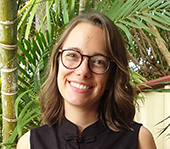 |
 |
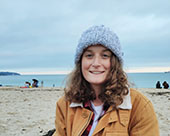 |
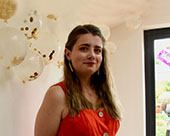 |
| Megan Strahle (2021) MRes Sustainable Futures |
Guy Shungu (2021) MSc Mining Environmental Management |
Alice Parfett (2019) Applied Data Scientist* |
Emily O'Brien (2020) Applied Data Scientist* |
Priyanka Shendage
MSc Sustainable Development (2018)
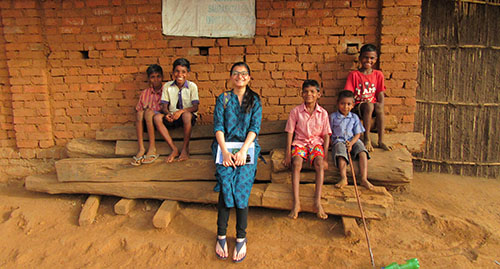
Hi Priyanka! It has been a few years since you studied with us at the University of Exeter, why don’t you tell us what you have been doing?
Hello … after graduating I got an internship for 8 months at Regulatory Assistance Project on work related to the thesis I had done for my MSc. During the internship, I built networks with leading experts working on other projects, later securing my current position as Analyst working on a clean cold chain project at MP Ensystems Advisory Ltd.
What did you enjoy most about studying your MSc?
The lecturers were the best aspects of the course. Due to their immense support, I got to understand the crucial skills necessary for academia. I really enjoyed the Energy Policy Module which had an excellent set of Professors with a depth of experience in their respective fields. This was very useful for me to carve my pathway after graduation. The Penryn Campus, where the MSc is based allowed me to interact with numerous students from across the world. Since the campus is small, I got to interact very closely, understanding their culture, food and diversity. This has deepened my sense of empathy and ability to work with international teams.
We are so glad you enjoyed your time on the Penryn Campus, how do you think the MSc helped to prepare you for your career?
The skills I gained when conducting fieldwork during my dissertation have prepared me very well for the project’s I am currently involved in. I got hands on learning with the help of my supervisor to do qualitative analysis in rural India, which has been my main focus area of research until today.
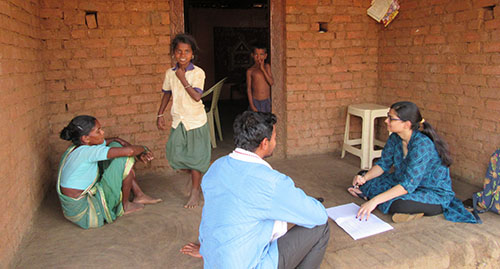
Why did you choose your career path and what are you hoping to do in the future?
A career in sustainable development allows me to interact with a wide range of people from rural communities to industry experts. The process of researching, presenting findings and developing policies is what I enjoy the most, as it is very fulfilling to see ground level work tying together with management. In the future, I would like to continue working on various development projects focusing on improving rural livelihoods through sustainable technologies.
Finally, do you have any advice for anyone thinking of applying to the University of Exeter?
Make sure you are aware of the unique location of the Penryn campus before coming. This can be a different experience from what international students have previous knowledge of!
Hyacinthe Ndolenodji
MSc Sustainable Development (2018)
Hello Hyacinthe, It’s only been a few years since you studied with us, why don’t you tell us a bit about your career in that time?
Prior to studying at the University of Exeter I have already worked with my current employer. Immediately after graduation and whilst I was still in Cornwall, they contacted me and asked about whether I was considering remaining in the UK or going back to Chad. Once I confirmed that I will go back to Chad, I was asked to share my dissertation report … which I did. Two weeks after returning to Chad, I received an email asking about my availability for full-time employment with the organization (Dutch NGO). I confirmed my availability, had an interview by Skype the following day and signed a contract only a few days later starting as Project Manager with Job Booster.
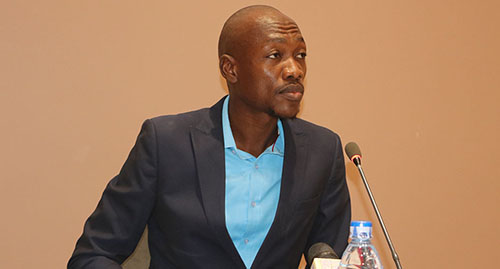
We’re glad you have had such a great opportunity since graduating! What did you enjoy most about studying in Penryn?
Coming from a hot and dry Sahel country, I really enjoyed the rain as it made me feel fresh and energetic everyday. Walking from my residence (the Sidings) to campus in the middle of beautiful nature was something I loved a lot. I was in direct contact with nature, daily. I really enjoyed the teaching methods, especially the workshops led by students. This method, in addition to enhancing my research skills, improved my PowerPoint and oral presentation skills a lot. The resources and equipment at the university were outstanding. I was particularly fascinated by the richness and quality of the online academic resources. There was no paper or book I was looking for which I could not find through the university online library.
What attracted you to study your MSc at the University of Exeter, Penryn Campus?
I choose the University of Exeter MSc degree programme, mainly for 2 reasons. Firstly, the University ranks high in the UK and in the world of Geography. In addition, the course modules offered for the course I chose, perfectly fit with my career aspirations. The University of Exeter is a research-focused university with great research resources and facilities, especially the ESI where real solutions to human and environment’s wellbeing problems are developed to make UK and the whole world a better place to live.
How do you think the MSc helped prepare you for your next steps?
My analysis and critical thinking skills improved significantly after my studies at the University of Exeter. These skills help me a lot in my current position, to constantly innovate, develop new project strategies and approaches in the context of a highly dynamic environment. Learning about the systemic approach to solving human/environmental problems has so far been most useful in my career. The teaching methods were more practical and solution-driven – this prepared me and helped me – to develop a capacity to critically analyze complex projects issues and propose unique solutions to them.
That is wonderful to hear … how did you come to choose your career path?
I chose to work as a project manager in a youth entrepreneurship and employment because of my passion to work in a youthful environment. This is an environment where there is a lot of creativity, innovation, energy, and dynamism. What I like the most about my current job is the degree of autonomy I have: My organization allows me to innovate and propose new strategies and approaches to attain our results.
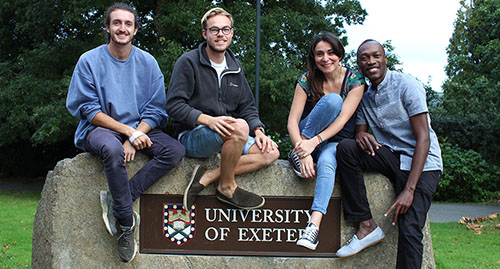
And lastly, what are you plans for the future?
In the future, I want to study for an MBA with a focus on social entrepreneurship to become more effective in providing live-changing solutions to our complex and ever evolving world, through a business.
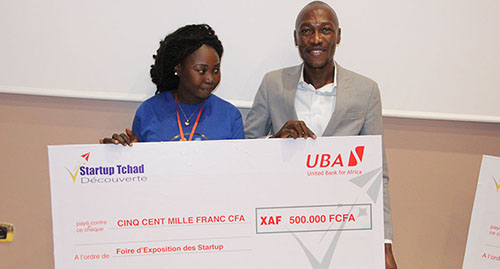
Naomi-Beth Dixon
MSc Sustainable Development (2020)
Naomi, it’s only been a year since you studied with us, why don’t you tell us a bit about what you are up to now?
I started searching for jobs when I was in the second term of my final year, just to get back into the habit of applications and to get a better feel as to what was available. After graduating I wanted to stay in Cornwall and knew that finding a job in my field of study may be difficult, so I regularly checked websites and career bulletins and updated my LinkedIn to make sure I was prepared for any opportunity. I applied for a job with Natural England in the July, shortly before finishing my studies, and found out that I had the job in November. It was a lengthy application process, but I was extremely pleased to have graduated and secured a new job as Lead Advisor in a few short months.
We are glad you have had such a great opportunity, what attracted you to study your MSc at the University of Exeter, Penryn Campus?
I had wanted to attend the University of Exeter for my undergraduate degree when the Penryn campus was newly opened just over a decade earlier, however at the time life had other plans. I had always wanted to study a postgraduate degree when the time was right, and Exeter was at the top of my list. The facilities, published research, location, academic and professional profiles of the teaching staff – all make University of Exeter a desirable place to be a student at and an alumna of. I stumbled across the course when speculatively looking to see if a sustainable development course existed. I had wanted to move to Cornwall and couldn’t believe my luck when I found that there was a dedicated sustainability institute in such a beautiful place. When looking through the modules the course seemed to perfectly capture what I wanted to study, and at such a respected research institution – it was an easy decision to make!
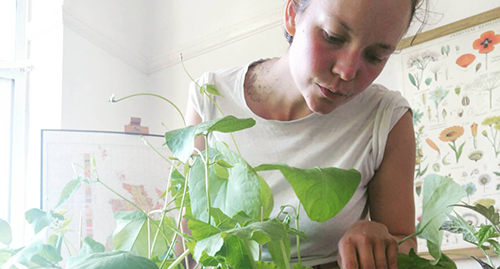
What did you enjoy most about studying your MSc?
The freedom to tailor the subject to what interested me most has been the most useful and fulfilling aspect of the course. As a ranging and multidisciplinary science, it was important to me that the assignments, whilst reflecting principles of sustainability, were broad in their scope and open to novel and creative application. Because of this I was able to study policy implications of agricultural plastic mulch, the impact of climate change on heritage management in the Champagne region, the potential for blockchain technology to revolutionise the energy sector, public perceptions of e-democracy and more, all on one course. This kept me enthused, interested, and excited about my degree over the two years, and allowed me to develop a wide range of researching skills as well as understand my own personal interests within the field.
How do you think the MSc helped to prepare you for a career?
Prior to studying my MSc, I had left an increasingly successful career to return to education because I felt I had lost the ability to learn. I saw colleagues come through graduate programmes in my office and was amazed at the breadth of their knowledge and ability to discuss contemporary subjects with confidence and ease. I knew I was interested but didn’t really know where to look when it came to developing my knowledge or staying abreast of information. This course has given me back my ability to learn, to soak up information and know where to seek out research, articles, and debates that I find interesting or are relevant to my career. I am excited to embark on my new career with the knowledge and enthusiasm I saw in those graduates; I feel that through this course I have woken up to my own potential.
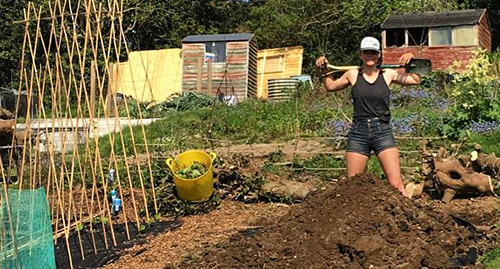
What are you plans for the future?
I am excited to get stuck into my new role as Lead Adviser with Natural England – not only is it a career based on my interests and recent degree, but it allows me to stay in Cornwall! I’m open-minded about where this new career will take me and remain interested in returning to study a PhD with University of Exeter in the future.
Finally, do you have any advice for students looking to pursue a similar career?
It’s been a long journey for me to achieve a career in sustainable development. My options seemed limited to ‘Physical Geography’ or ‘Human Geography’ when I was starting out in my late teens, so I’ve taken a bit of a winding path to get to where I am today. Courses such as the MSc Sustainable Development are invaluable to anyone starting out in a career because they make sense of a massive and complex subject. Whether you’ve just finished your undergraduate, or if like me you’re hoping to refocus your career in a direction you want, taking one or two years to immerse yourself in a course such as the one I studied is a fantastic developmental step. Not only are the taught courses engaging and thorough, the potential for networking and career development is invaluable.
Thanks Naomi!
Oana Stefancu
MSc Sustainable Development (2017)
Hi Oana! We’re glad that you are still working with us at the University of Exeter, why don’t you tell us what you’ve been up to since graduating?
During my MSc in Sustainable Development I was lucky enough to be granted the University of Exeter Vice-Chancellor’s Scholarship to proceed with a PhD programme. This gave me the opportunity to come up with an original project of my interest, for which the University provided the funding. Under the supervision of Prof N. Adger, Dr L. Evans, and Dr R. Safra de Campos I spent the past three years researching Wellbeing and Justice implications in climate-induced Planned Relocations in the Ganges Brahmaputra Delta, India.
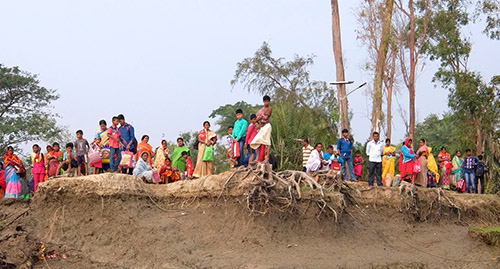
We’re glad you have had such great opportunities! What did you enjoy most about studying in Penryn?
The University of Exeter Penryn Campus offers a great environment for students and young researchers to learn from and collaborate with some of the most prominent figures in the field of Geography. Their openness in supporting students in their research and career progression was invaluable.
The MSc Sustainable Development course was highly adaptable to my academic and professional interests. The modules available on this course covered a wide-range of themes from climate change science, to governance, and health impacts of environmental change, among others. I was able to select the modules which better reflected my interests, and tailor the assignments on topics that I considered most timely and relevant.
How do you think the MSc helped to prepare you for your career?
Part of the MSc Sustainable Development course involved learning how to effectively apply for grants by identifying timely and relevant research questions that address both literature gaps and real-world problems. Due to the skill of Grantsmanship I was able to secure funding for a PhD project tailored to my interests.
The research community makes University of Exeter a unique place of study. Having the opportunity to learn about my lecturers’ latest research and fieldwork experiences inspired me to pursue a career in research myself. The skills and knowledge gathered throughout my MSc in Sustainable Development gave me the ability to be an independent researcher. As part of my PhD, in fact, I undertook extensive fieldwork in India where I had to manage a team of research assistants and manage the data collection process. This has been a wonderful experience, for which the MSc prepared me well.
Why did you choose your career path and what are you hoping to do in the future?
What I enjoy mostly about research is the opportunity to explore real-world problems that affect some of the most vulnerable populations. Meeting marginalized communities and understanding how climate change is affecting their lives is key in producing knowledge that accounts for their lived experiences, aspirations, and values.
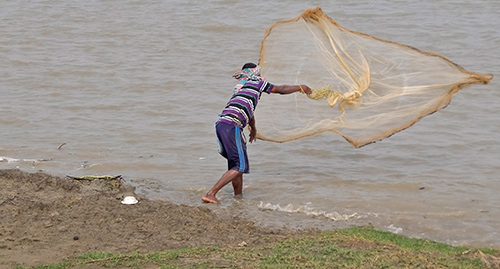
Lastly, what advice would you give to someone hoping to pursue a similar career?
A career in research is unquestionably exciting, but the PhD process is long and requires a lot of hard work. My advice would be to focus on topics you are truly and personally passionate about. This will keep you motivated even when the going gets tough.
Thank you Oana!
Catherine Lee Hing
MSc Conservaton Science and Policy (2021)
From the US but grew up in Jamaica

When I was looking for a Masters programme I looked at a lot of universities and spoke to lots of different professors but the only professor who responded to me in a genuine and helpful way Professor Brendan Godley from the University of Exeter. One university professor just told me to look at their website whereas Brendan took the time to look at my profile and suggested which programme would fit me best. Ultimately this is why I chose the University of Exeter as it was really nice having someone to take the time to help me on an individual basis.
I think one of the most challenging parts of the programme for me was doing the R stats class as I hadn’t done anything in R before but now my entire dissertation is based on this. Despite it being a challenging class, the professor who ran that course did his best to help us. For example, he stayed behind after classes for an hour or two to help us and even ran help sessions for us.
One of my favourite things about the programme which I loved and really enjoyed was the Kenya fieldtrip. This was probably the highlight for me as that is when you actually got to know your classmates better and bond with them. As the programme is a small group it was really lovely and at the end of the trip it felt like you knew them much more. I also felt like this when I took part in a fieldtrip to Kew Gardens and we got to know each other really well and work closely. This is something from the programme that I will cherish.
Another thing I’ve really enjoyed is the ‘Women in Conservation Group’ that myself and several of my female classmates set up. Last year we organised a symposium where we invited women speaker in the conservation field to come and talk to the university and members of the community. They spoke about their journey in conservation which was amazing and great to hear a different perspective.
As an international student I definitely felt welcomed and this wasn’t a problem for me. I’m pretty outgoing so found it fairly easy to make friends and made a lot of friends across the years and across the two universities which was really nice. I really liked sharing the campus with Falmouth University as having the two universities there gives a different feeling and you get to mix with different people that you may not have met otherwise.
I’ve now finished my Masters and the exciting part is that I will be continuing to work for one of my dissertation supervisors who is based at the Plymouth Marine Lab; if you told me I’d be doing this a year ago I wouldn’t believe you. After this, I’d eventually like to go on to do a PhD hopefully through the University of Exeter.
Sienna Lula Somers
2018 MSc Conservation Science and Policy graduate
2017 BSc Zoology graduate
From the Peak District, UK
Current job role: Policy and Advocacy Manager at the Hampshire & Isle of Wight Wildlife Trust
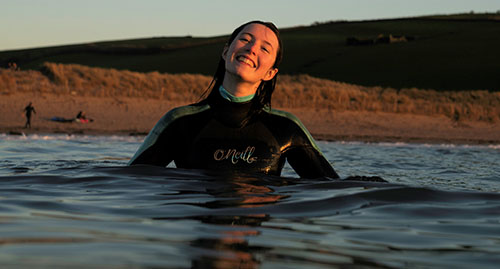
I chose MSc Conservation Science and Policy as I think the policy side of the programme and being able to take modules in sustainable development was really appealing. Policy for me stood out as it’s a way you can make you can make an impact in a much more systematic way and I really enjoy wanted to learn how to tackle those big issues, implement policy change and understand how that works to have a large impact. For me this programme was a good route to do this.
I studied my undergraduate degree at the University of Exeter’s Penryn Campus and felt like it was such an amazing environment with amazing researchers and academics. I also just loved the atmosphere of being by the sea and being around the fauna and flora; it’s a really unique space to be able to study I was desperate to stay there for as long as possible. I still be there now if it wasn’t for work!
Overall the programme is an amazing diverse array of people that teach you. We had so many outside guest lecturers come in to talk to us about a whole host of topics that I’d not been exposed to before and also the lecturers at the University meant I could learn more about how conservation impacts people and how it all works together.
Our lecturers were incredibly supportive, for example, my stats lecturer would spend a long time sitting with us helping us to understand the subject and giving us 121 support in the Masters Suite- they were always there to help. As you are a Masters student, they know you have that extra level of dedication and are willing to spend time helping you develop and understand where you want to go and what you want to do.
For me the Kenya fieldtrip was an amazing experience; we got an amazing balance of seeing so much incredible wildlife but also understanding how the people who live there are impacted by conservation. We got to talk to local Maasai people to understand how they are impacted by wildlife, and we ran focus groups with them about how they are impacted by lions taking their livestock and how by retaliation they kill wildlife. The trip was really community and conservation focused and I am still applying the skills I learnt in Kenya to my work today where I am trying to think about communities and all the different stakeholders impacted by the work we are doing.
I think the Penryn Campus itself is a really amazing place as you have the relationship with the Falmouth University. This gives the campus such a great diversity of arts, humanities and sciences with different people with different skill sets. It means you can have more interesting conversations and make friends you wouldn’t normally make.
After finishing the MSc Conservation Science and Policy, I worked for a couple of years in an NGO working in the fashion industry. In this NGO I worked on policy and research, looking at sustainable fashion and working on the ground with communities such as cotton farmers. Now I work for the Hampshire & Isle of Wight Wildlife Trust where I work with communities. I get them involved in policy work and also work directly with MPs and Councils to make sure that nature recovery is on their agenda and that they are implementing best practice conservation.
Ultimately, I found the course invaluable for understanding a whole range of things such as practical conservation and rewilding as well as how communities are affected by conservation.
Andy Smith
MSc Renewable Energy Engineering (2021)
From the UK, lives in Exeter
Mature student
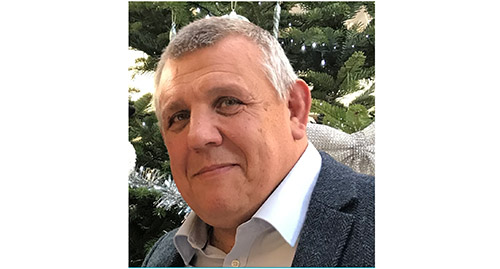
I chose to study MSc Renewable Energy Engineering because I’ve had a career in engineering for over 40 years and I wanted to update my knowledge and experience so that I could go into the renewable sector. I started my engineering career as a mechanical engineer after doing an apprenticeship and I think it is never too late to stop learning and upskill yourself. I love the idea of being able to give something back in my later career life; I feel it is important to leave this world in the same way I found it or better and I think renewable energy is a way to do this.
I chose the MSc at Exeter because I really did like what the course had to offer in comparison to other universities and I really liked the fact that it is based in Cornwall which is the hub of where renewable energy is happening in the UK. What’s more both my sons studied at the University of Exeter and my wife is also a lecturer at Exeter so it felt like I already had a connection to the University.
My favourite thing about the course so far has been the connection with the lecturers and the content that we are learning. For me the MSc is a reinforcement of my thoughts and ideas about renewable energy and how important it is. It’s given me a better understanding of the details behind renewable energy engineering and helped me to really understand things properly and unlearn the ‘myths’ I had about the sector. I’ve also really enjoyed the climate change module; I had a good grounding of this already but learning about it in such depth has reinforced the details and given me an understanding of the complexities surrounding this issue.
The fact that we have a variety of optional modules to choose from is nice, it’s great to be able to hone your own skills. I put myself out there by choosing modules I didn’t have much knowledge on as I didn’t want to do stuff I’ve been doing for the last 40 years of my career. I’ve really challenged myself to do other things but it’s been great fun as well as tiring and exhausting.
As a mature student I’m a lot older than some of my younger peers on the course, however I haven’t found this a disadvantage. Everyone has been really inclusive and easy to get on with.
There’s a real diversity of backgrounds, ages and experience on the course. For example, I worked on a project with two guys with international backgrounds and a girl from the UK, all much younger than me, but thoroughly enjoyed working with them and they enjoyed learning from my experiences too. It was a nice exchange of age information and knowledge. I was initially worried about being older but soon found that my younger peers may be able to do something in theory, for example using a simulation, but due to my experience I’ve been able to bring a different perspective and show them how things might actually work in the real world.
All our lecturers have been really supportive and done a fantastic job of trying to keep a coherent and progressive information exchange which has been difficult due to online learning. Lecturers have tried to engage us all the time and have invited guest speakers as well to talk about different elements of renewable energy engineering particularly in solar energy. We’ve also had demonstrations of software being used in commercial and industrial settings so it’s all relevant knowledge that we are gaining.
It’s great that our lecturers are always available and have been running online office hours where you can ask for help. They also always answer emails whenever you send them, and you can contact them in lots of ways other ways too. I’ve also found that our tutors are really good at dealing with people’s wellbeing as well and academic issues and always want to give you that support to help you achieve.
After finishing the MSc I’d like to go into the renewable sector for the remainder of my career. I’ve spent all my time in production so this is a complete change in direction for me but it’s enabled me to do something that has a good cause and is worthwhile. Over my lifetime I’ve seen the effects of climate change on our ocean and land and want to help reverse this. I have my own children and I want them to have a good world to grow up in so that is really my drive behind doing this.
It’s never too late to go back and do something different. Yes it’s hard stepping outside your comfort zone and you can feel challenged but as an individual will grow and feel you are doing something positive.
The MSc has given me an opportunity to get into renewables, something I probably wouldn’t have been able to do if I hadn’t done the course. It’s a fantastic course with fantastic lecturers with great connections and if you put the work in you will get the results out that will enable you to move forward and build a better world. I don’t think there’s been one things on this course that hasn’t interested me, it’s all been relevant and interesting.
Tim Pickering
MSc Renewable Energy Engineering (2020)
UK student
Monitoring & Performance Engineer at Bluefield Services Ltd.
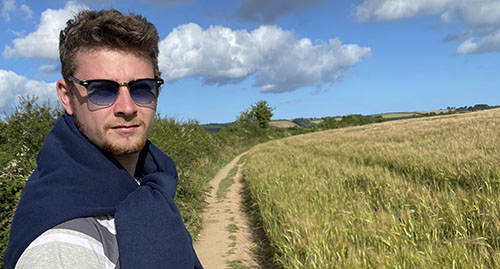
I studied Physics at Exeter on the Streatham Campus and as part of my undergraduate degree I wrote a dissertation on solar PV optimisation. This led to an interest in renewables, and I knew I wanted to specialise in this area, so I applied for the MSc Renewable Energy Engineering course at Exeter’s Penryn Campus in Cornwall.
I did look at other university courses, but personally felt like Exeter’s course was the ideal choice. It certainly helped that I already loved the University from previously completing my undergraduate degree there. Cornwall is also a renewable energy hub and Exeter has so many specialists in the field, so choosing to study at the Penryn Campus was really the best decision I could’ve made.
The course in general was really fulfilling and the lecturers were brilliant and very down to Earth. It’s a difficult course but also very varied in terms of the skills learnt; from computer and IT software skills, through to working with the financial aspect of renewable energy. The versatility of the course was something that really stood out, with the focus not purely on theory and the mechanics behind renewable energy systems.
The module flexibility of the programme really gives you the option to mould your degree and focus on what you really want to learn, to help steer you in the right direction towards your desired career in the renewable energy sector. For example, I know my friends from the course have gone on to do a whole variety of jobs in the renewable sector. Myself, I work as a solar PV Monitoring & Performance Engineer at a solar asset company, Bluefield Services Ltd.
My thesis was supposed to be almost entirely lab-based over the summer, but unfortunately I had to change plans due to the pandemic. I decided to remotely access the Environment and Sustainability Institute (ESI) optical software to perform light simulations from home. This was fairly challenging as I had to learn this software from scratch which was a complex task and something I didn’t foresee.
I really have to give credit to my thesis supervisor, Dr Katie Shanks, who was incredibly supportive and a really positive influence on me throughout my degree. I’d be asking her questions every other day and she’d always be ready to answer and to meet with me regularly to help me through the process. I really felt like what I put in she put in too, even though she had her own work and meetings to get on with. After the completion of my thesis, I have since published a paper in the Journal of Optics that I wrote after graduating, of which Katie is a co-author. I’m really proud of that and can’t thank her and the department enough for their continued support.
My favourite thing about the MSc was the research aspect and the engagement I had with ESI department. They were all welcoming and brought me into the research sphere, whilst creating the right environment for me to get involved and take something valuable away from the degree. My research project was a highlight for me as it was a large step up and much more was required of me. I also really enjoyed the solar energy innovation module and the use of PVSyst software; I felt like I developed in this environment and it was exciting to be exposed to technical work such as this.
At the start of term 2 I had to have ankle surgery, and the University was great in supporting me through this. I was assigned a mitigation officer which really took the pressure off and meant that I didn’t have to fill in lots of forms to apply for mitigation. They really helped alleviate the stress, which meant I could focus my free time on my work and learning.
In regard to the social side of my course, the MSc brought together people from many different countries and backgrounds of all different ages, which gave a real mix of diversity to the course. As we were such a small group it was easy to get talking with people and form tight friendships, especially due to the collaborative nature of some aspects of the course. My core group of friends were from the course, and we regularly went out together to relax after spending hours on various projects. Another benefit of having a fairly small cohort meant that we also got more personal interaction with lecturers which was extremely valuable. There was definitely a community feel to the programme.
I loved living in Cornwall and for me the summer was just brilliant. Cornwall is a stunning area and the beaches alone made it so worth living there for my MSc!
Megan Strahle
MRes Sustainable Futures (2021)
From the US
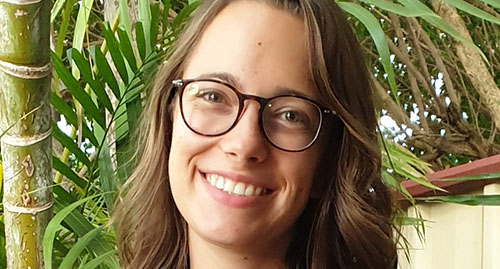
I’ve worked in the events and tourism as well as studying for about the last 10 years and when I was studying in Australia one of my professors said that it was my generation’s job to solve the world’s sustainability and environmental issues. This realty resonated with me and made me want to help change things which is why I decided to study MRes Sustainable Futures.
I chose the University of Exeter’s MRes Sustainable Futures as I wanted to focus on sustainability but also wanted the flexibility to do something not completely science focused. I also wanted to live in Cornwall as I love the outdoors and love being by the water.
I never really thought about what a research degree would be like but I was pleasantly surprised by it. I love how we also have classes and modules we can pick as well as the research side of the degree. I’ve really enjoyed all my modules and its nice being able to pick optional modules that I’m interested in; I picked some that focused on sustainability in the real world. I also did a climate change class that I thought would be hard because it is science based, however my lecturer was amazing and was able to explain things in a way so that someone who’s not a scientist can understand it. She’s so good at teaching it was one of my favourite classes.
There are also tons of dissertation project opportunities with Environment and Sustainability Institute (ESI) which is based on the Penryn Campus. For example, one of my course mates is sitting in on a housing inequality project and I’m sitting in on a sustainable tourism project and we’ve both been enjoying this experience.
I have found the lecturers are quite open minded as everyone is from different backgrounds and they enjoy hearing different perspectives and ideas. It’s nice as there’s a very open dialogue in classes which I really like as it opens communication and gets you to see things from a different perspective. I’ve really loved all my lecturers at Exeter.
I love living in Cornwall and got really lucky and found really great housemates which has been nice. I’m very outdoorsy and love being near the water and even though everything is shut due to lockdown you can still go out and experience the outdoors. Haven’t been able to see the rest of Cornwall yet due to lockdown but I still love it and I love the community feel that it has.
As an international student arriving during a global pandemic, I felt that the support we received was great. Before starting at Exeter, the University kept me updated on what was happening every two weeks and helped us navigate the confusion around the pandemic. They were definitely great at communicating and were there to reassure us and give advice. It made me and other international students not feel lost when starting at Exeter; it was a really great start.
Everyone has been very welcoming and I have made some really good friends. For example, we’ve made a journal club where each week we read an article on sustainability and then debate it. My favourite thing about the programme so far has been making some really good friend even though we haven’t always been able to meet in person.
As I’m an older student, I was worried that everyone would be much younger than me. However, there’s a nice mix of ages on the programme. If anyone is hesitant to apply because of their age, they shouldn’t be. I love that every single person is from a different background and I’ve learnt so much from so many different people that I would have never known before coming to study here; I’ve really enjoyed this aspect of studying.
Guy Shungu
MSc Mining Environmental Management (2021)
From The Democratic Republic of Congo
Chevening Scholar
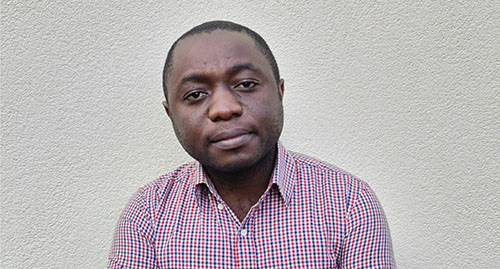
When I was looking for UK universities I found Exeter and chose it because it is Russell Group University and one of the top 200 universities in the world. I also felt like there were so many facilities and the programme I was looking was offered at the University of Exeter’s Penryn Campus. I know I wanted to study environmental studies that could be applied to the mining sector and MSc Mining Environmental Management is the perfect programme for this.
The programme itself is so wonderful and I particularly love the multidisciplinary aspect to the programme which covers various engineering and mining topics. The world is currently facing a lot of problems concerning mining waste so this Masters programme really focuses on real world issues, and we get to learn about how to deal with these issues and remedy them. I find it a very rich and interesting programme to study. I’m so happy to be here studying MSc Mining Environmental Management; it’s definitely well designed for someone who wants to work in the mining and environmental management sector.
I’ve also been really impressed with the quality of our lecturers who are always there to give guidance and provide you with all the materials that you want. Our lecturers are always ready to give us help if we need some extra support, we can just email them with any question and they will always reply which is amazing.
I really like living in Cornwall as I like the countryside, the nature itself surrounding the Penryn Campus is beautiful. The environmental landscape is so fresh compared to living in a big city. I like the campus too; the facilities are good. The Penryn Campus is very nice and you have everything you want. The services that are being provided even during the pandemic are really good; it’s easy to get any book you want from the library if you need it and if you want to study in Masters Suite you can. I do feel like we are being provided with the support we need during this time.
I also really like the research facilities available to us as we have many types of equipment in the labs so you can do your research and have all the equipment you need. When I was researching universities I found that a lot of other universities in Europe don’t have these facilities but we do at the Penryn Campus. It’s very good if you want to use that to do some in-depth research for example into mining waste.
When I arrived it was during the lockdown but as an international student I got a lot of support from the university. They call us every week to check on us and we’ve also been provided with online sessions about settling in. I really like the fact there is some support from the University especially for those affected by mental health issues which is important. When I arrive I had to do 14 days of isolation but was provided everything I wanted and the University were ready to help even provided me with food. From my flatmates, to lecturers, academic tutors and University staff, I’ve found everyone so welcoming and I’ve found I’m really getting a lot of support.
I’ve always wanted to contribute to a better world by improving the use of natural resources in a sustainable way, so I’d like to find a job contributing to solve the issues relating to the environment and sustainability. This could be in the mining sector or working for NGOs looking at responsible mining. I’m also thinking of doing a PhD later down the line so maybe I will be back!
Alice Parfett
PhD student at the University of Bath’s Accountable, Responsible and Transparent AI Centre for Doctoral Training.
*Alice graduated from the Mathematical Sciences degree, which has evolved into the MSc programmes in Applied Data Science with specialisms in Environment and Sustainability, Renewable Energy, Ecology and Evolution, and Modelling.
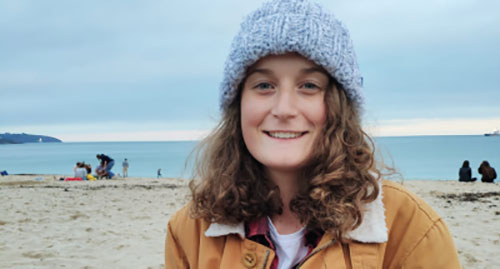
First off, please tell us what you are up to now and how you got there?
I graduated from studying in Penryn in 2019 and I since managed to secure a place at University of Bath in the Accountable, Responsible and Transparent AI CDT. I am midway through my MRes year currently and thoroughly enjoying it!
We’re glad you had such great opportunities! What did you enjoy most about studying in Penryn?
I loved studying in Penryn, for me it was one of the only places doing my course and they are really open-minded about interdisciplinarity with expert lecturers in their fields. Also, I couldn't have wished to study in a nicer place, the environment is really relaxing!
Finally, do you have any advice for anyone thinking of applying to any of our programmes in Applied Data Science at the University of Exeter?
I would say that if you research the course thoroughly, talk to programme leaders and decide that it is the right one for you then you will be in safe hands throughout and Cornwall is the perfect place to study.
Emily O'Brien
AI Analyst at The Range.
* Emily graduated from the Mathematical Sciences degree, which has evolved into the MSc programmes in Applied Data Science with specialisms in Environment and Sustainability, Renewable Energy, Ecology and Evolution, and Modelling.
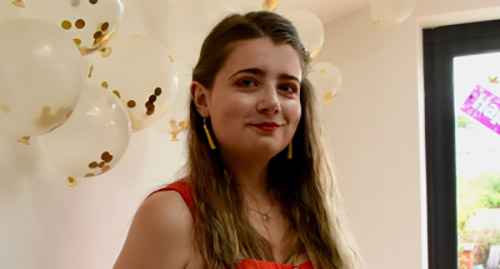
Why did you choose to study this programme at the University of Exeter in Cornwall?
I chose to study in Cornwall because I liked how green and rural it was, and how chilled out the whole pace of life is down there. I’m not a city person, so Penryn was the perfect fit for me!
What did you enjoy most about your degree?
So many things! I loved that we were a small cohort, so the lecturers knew us all by name and we were able to easily ask questions and get help from them. I also enjoyed all the maths celebrations we did like Pi and Fibonacci day, and I’ve made some wonderful friends from the experience.
Do you have any advice for anyone thinking of applying to our programmes in Applied Data Science?
Do it! It will become such an essential skill to have for the future, with more and more people/companies realising the value of data and the power of data science, you really will be in high demand after you graduate!

